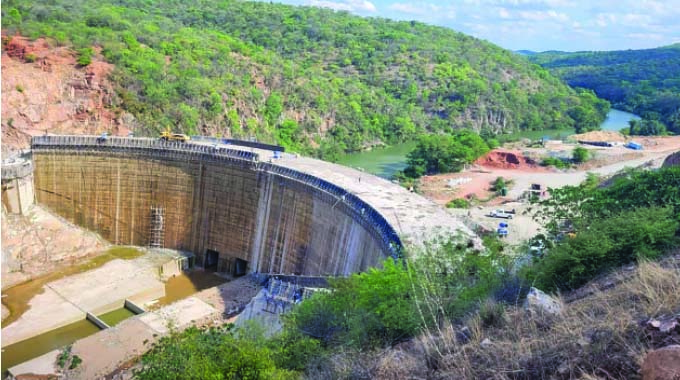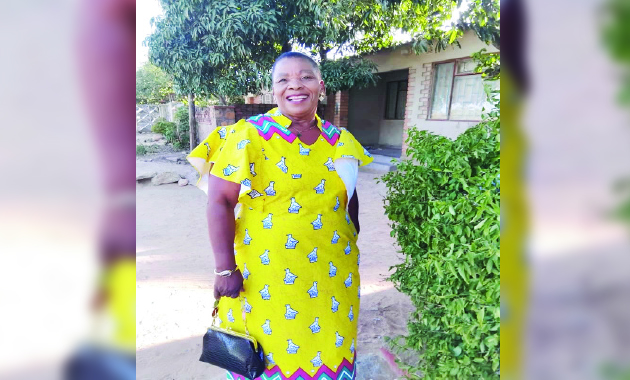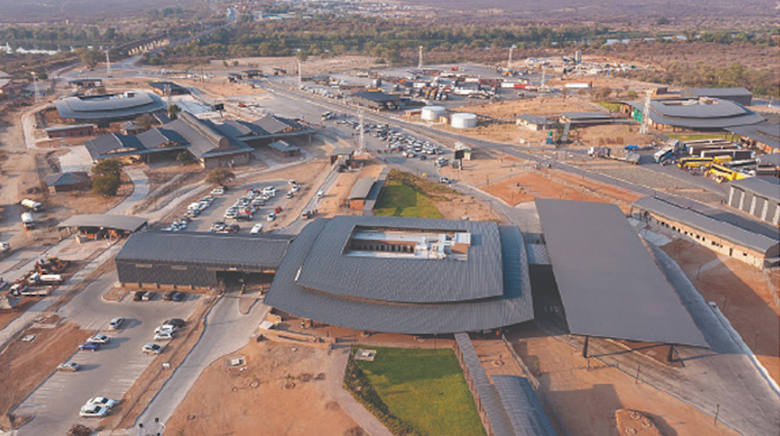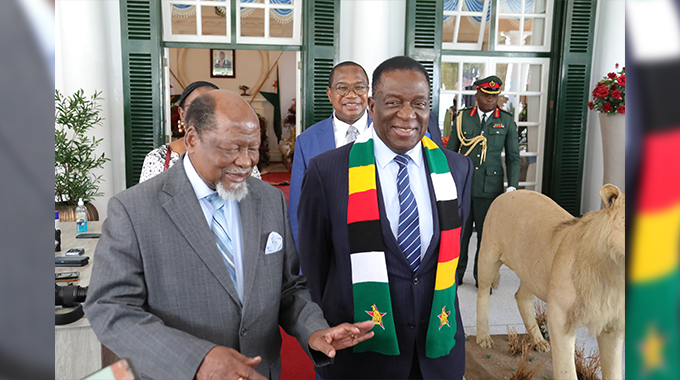Huge send-off for national heroes

Blessings Chidakwa, Zimpapers Elections Desk
THE National Heroes Acre was yesterday packed to the rafters as thousands thronged the revered burial shrine to witness the burial of two national heroes as well as commemorate the National Heroes Day.
Two illustrious national heroes Cde Johannes Tomana and Brigadier-General (Retired) Milton Siziba whom President Mnangagwa described as “distinguished patriots and dedicated cadres” were laid to rest among the country’s finest sons and daughters.

The late Brigadier General (Rtd) Milton Bekithemba Siziba
Family members of the departed cadres thanked President Mnangagwa’s administration for according the highest honour to their beloved ones.
Ricky Tomana, the son of the late hero, expressed the family heartfelt gratitude for the national hero status honour bestowed on his father.
“My father, our father was and will always be the epitome of a man in my standing in life. He lived out the three principles that confirm a man, the priest of the family, protector and most importantly the provider for the family.
“Characterised by love in abundance his life can’t be summed up, but the stage in which he had reached was a unifier, honest man, a loving husband and father, man of integrity and patriot to the cause of the nation,” he said.
Ricky said his father was always dedicated to the national vision such that he would only take his annual leave to come only to worship.
A brother and family spokesperson to the late Cde Brigadier-General (Retired) Siziba, Mr Andrew Ncube said the family took solace in the honour bestowed on the national hero.
He said Mr Siziba, who was the eldest brother being number two in a family of eight, took care of his siblings when the father died in the early 2000s.
“It is better to have loved and lost than never to have loved at all. As a family, we have lost a pillar of strength, a pillar of guidance and love.
“He was a father, brother and a friend. It’s not only us as a family who have lost we believe, but as a nation we have lost as he was a soldier, commissioner and a war veteran. In the family he would listen to the youngest family member,” he said.
Former Prosecutor General Kumbirai Hodzi said the national hero status to Ambassador Tomana was befitting.
“It is a recognition of the immense efforts the late national hero made in the use of Jurisprudence and Law, especially his progressive interpretation of International Law to defend the Sovereignty of the Republic.
“What distinguished Tomana from all his contemporaries was not only his sharp legal mind. It was his sense of discipline. Tomana had the discipline of a professional commando.
“But this discipline stemmed from a very clear sense of duty and purpose. The purpose to serve his country and the Global South. Tomana was very passionate about inter-African cooperation including integration and trade.”
The late Cde Tomana enrolled for Grade One at Nid Valley School, Zvimba District and later transferred to St David Bonda Mission in 1976. In 1977, he again transferred to St John’s Sakarombe Primary School up to 1979.

The late Zimbabwe Ambassador to DRC, Johannes Tomana.
In 1980, young Johanne moved to St Mathias Tsonzo Primary School for the remainder of his primary education. The academically gifted Johanne did part of secondary education at St Mathias Secondary School from 1982 to 1984.
In 1985 he transferred to St Augustine’s High School for the remainder of his ordinary level studies. In 1986, he enlisted for Advanced Level studies at the same school and completed in 1987 with flying colours.
In 1988, he enrolled at the University of Zimbabwe for a Bachelor of Laws (LLBs) Honours Degree which he completed in 1992. In 1993, he was duly registered as a legal practitioner.

Vice President Kembo Mohadi lays a wreath on the National Heroes Acre Roll of Honour as a way of respecting the country’s fallen heroes and heroines in Harare yesterday
In the same year, Advocate Tomana went to Sweden to study towards a Masters in International Law, which he completed in 1994. Upon his return to Zimbabwe in October 1994, Advocate Tomana joined Ziumbe and Mtambanengwe Legal Practitioners.
In September 2000, he moved to Muzangaza, Mandaza and Tomana Legal Practitioners. In 2003, Advocate Tomana was appointed chairperson of a Commission of Inquiry into allegations of misconduct by six City of Harare councillors.
In 2004, he also chaired another Commission of Inquiry which heard allegations of misconduct against the then Executive Mayor of the City of Harare, Elias Mudzuri. Between 2003 and 2005, he served as a Board Member at New Ziana.
In 2004 he was appointed Board Member for Zupco. In September 2005 he was appointed Chairperson of the Anti-Corruption Commission Investigations and Prosecution Committee until September 2007.
During the same period, he was also the Chairperson of the Anti-Corruption Commission Legal Committee.
Advocate Tomana served as Deputy Attorney General from 2006, before being promoted to the position of substantive Attorney General in 2008.
In 2011, Attorney General Johannes Tomana launched a court challenge with the European Union Court of Justice against the illegal sanctions imposed on Zimbabwe.
In November 2013, he was appointed Zimbabwe’s first Prosecutor General under the new Constitution of Zimbabwe Amendment No. 13.
He played a critical role in shaping the country’s legal ethos and the prosecutorial system. In 2020, he was appointed Zimbabwe’s Ambassador to the Democratic Republic of Congo, a post he held until his untimely death. Ambassador Tomana played a pivotal role in Zimbabwe’s engagement and reengagement drive with singleness of purpose.
He is survived by wife Daphne and five children namely; Ricky, Unesu, Mutsa, Kudakwashe, Kudzi and one grandchild, Adiwa Malachi.
As of the late Cde Brigadier General (Retired) Siziba he enrolled for primary education at Tudi 1 School in Maphisa, Kezi, Matabeleland South in 1960 and in 1967, he proceeded to Matobo High School for secondary education up to Form Two.
He could not further his education due to bottlenecks in the education system introduced by the white minority government that was meant to discourage blacks from advancing their education.
Driven by the desire to liberate the country from colonial repression, Cde Siziba skipped the border into Zambia to join the liberation struggle in early 1977. He received military training at Khohima Barracks, Zambia in late 1977 and graduated as an Officer Cadet.
In 1980, Cde Siziba returned home and was deployed at Entumbane Assembly Point. In 1981, he was attested into the Zimbabwe National Army as Lieutenant.
He was deployed at Maheba, Zambia where he was tasked with the formation of regular battalions. He was deployed as a Detachment Commander and later Chief of Personnel under the ZIPRA forces in Zambia.
During the same year he was appointed Acting Commanding Officer 15 Infantry Battalion until 1982. In 1983, he was appointed Acting Commanding Officer 28 Infantry Battalion.
Lieutenant Siziba was then appointed Commanding Officer 43 Infantry Battalion in 1984, later the same year he was promoted to the rank of Captain.












Comments